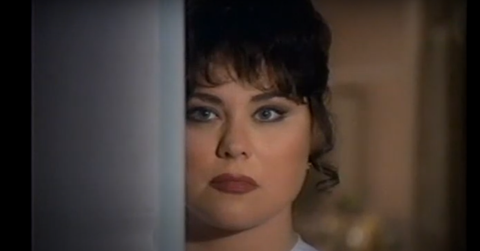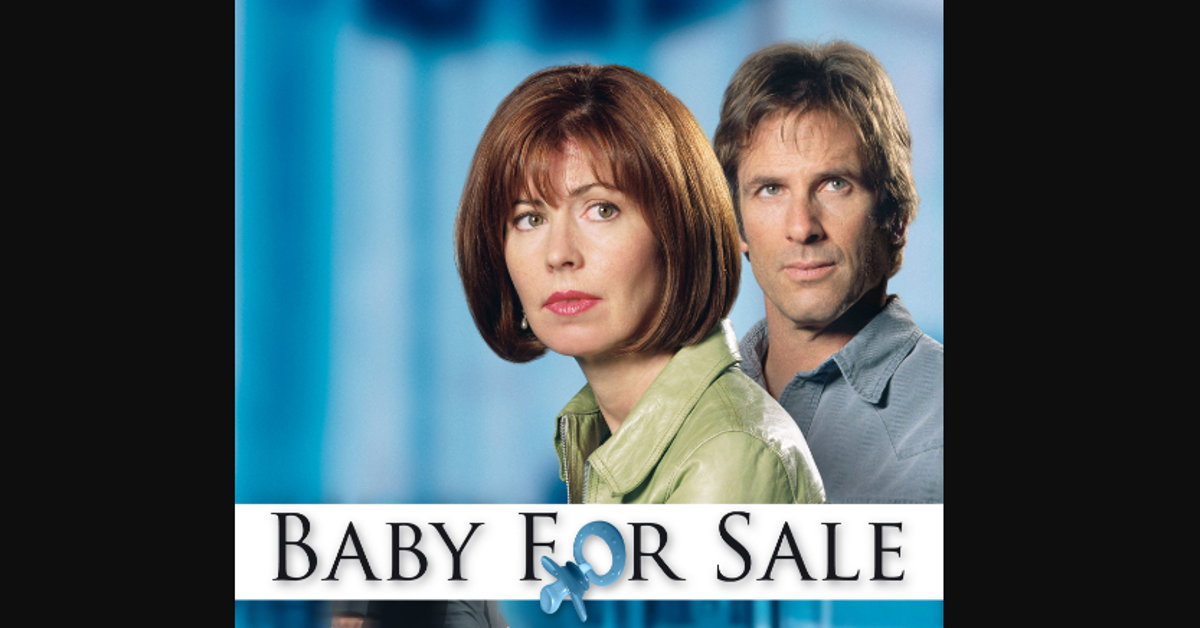Why Are Lifetime Movies So Ridiculously Bad?
Updated Oct. 23 2020, 12:54 p.m. ET

While I understand that everything is a matter of opinion and different people have different tastes, there are some things that are just undeniably bad, and yes, that includes certain "artistic" choices. While Nicolas Winding Refn's Drive can piss some people off for a lot of its silent moments, the movie had a cohesive plot (I personally loved it), but Only God Forgives was a rambling mess and it didn't have to be. Lifetime movies have historically been bad, but why is this so?
Seriously, why are Lifetime movies so bad?
In the case of Drive and Only God Forgives, it's particularly frustrating because both movies star Ryan Gosling and feature the same director, but one decides to tell a complete story while the other wants to regale viewers with random cuts of an uber-violent police chief randomly singing karaoke.
But Lifetime has consistently made movies that are almost intentionally awful — at least that's what the perception is.

In recent years, they've made some flicks that are actually pretty darn good, like Gracie's Choice (Anne Heche got an Emmy Award nomination for her work in it and it also starred Kristen Bell who was excellent in the flick), along with Homeless to Harvard, Coco Chanel, and Call Me Crazy. While these flicks can't rival major Hollywood films in terms of production value, they're very solid movies.
Then there are movies like Maternal Instincts, which is so bad it's hard to tell whether or not it's supposed to be a spoof. The film is about a woman who wants to have a child very, very desperately, but also has cancer. While in a coma, she needs a life-saving hysterectomy, and since time is of the essence and she can't make the decision for herself, her husband and best friend decide to put her under the knife.
When she comes to, she realizes that her ability to reproduce has been taken away from her and she's PISSED. Wrench in hand, she chases her pregnant doctor around a boiler room, kills her husband, and generally shrieks throughout the entire 1996 affair. Don't confuse this film with the 2017 Maternal Instinct which is about a badass woman who is all about protecting kids.
I found the full Delta Burke film on YouTube. You're welcome.
Of course, you've got other classics like, My Stepson, My Lover which was really ahead of the curve when it comes to subject matter in the adult cinema space, along with A Face to Kill For and A Face to Die For, which, crazily enough, aren't sequels or tied together in any cinematic universe.
Of course there's always Baby for Sale, and Cyber Seduction: His Secret Life, which is about a young man who gets addicted to porn and that addiction leads him down a dark path.
Lifetime "revamped" their image to an anti-Hallmark channel one; more 'Memories of Murder' and less 'Christmas on Ice.'
When the channel first debuted, they were having a hard time retaining viewers because, for some reason, everyone thought that their channel was a Christian Programming network. Maybe viewers were getting their fill of the lord on another channel, or that's not something they wanted to kick back and relax to after a hard day's work, but it wasn't pulling in any viewers.
Lifetime then decided to pivot hard against their image and pulled out all of the stops, producing over-the-top content with shocking subject matter. The network still held true to its "television for women" motto, but it ultimately decided to pursue that idea with scenarios and film ideas that put its female characters in violent and lascivious scenarios in an attempt to grab people's attention.
It worked. Because they were initially hemorrhaging money and needed to churn out movies quickly, too, there was more of a focus on shock value than production quality. What you have to understand too is that back in the day, filming was very, very expensive: like film itself was a pricey commodity. So it's not like you could have a bunch of takes and just delete the ones you didn't like. Every take was "wasted" film.
So the mentality of "if it ain't broke, don't fix it" probably persisted on Lifetime. Again, that's not to say that a lot of Lifetime movies and programs didn't actually discuss important subject matter when it pertained to families, relationships, and women in the workplace, but that's kind of overshadowed by titles like I Do, But I Don't.